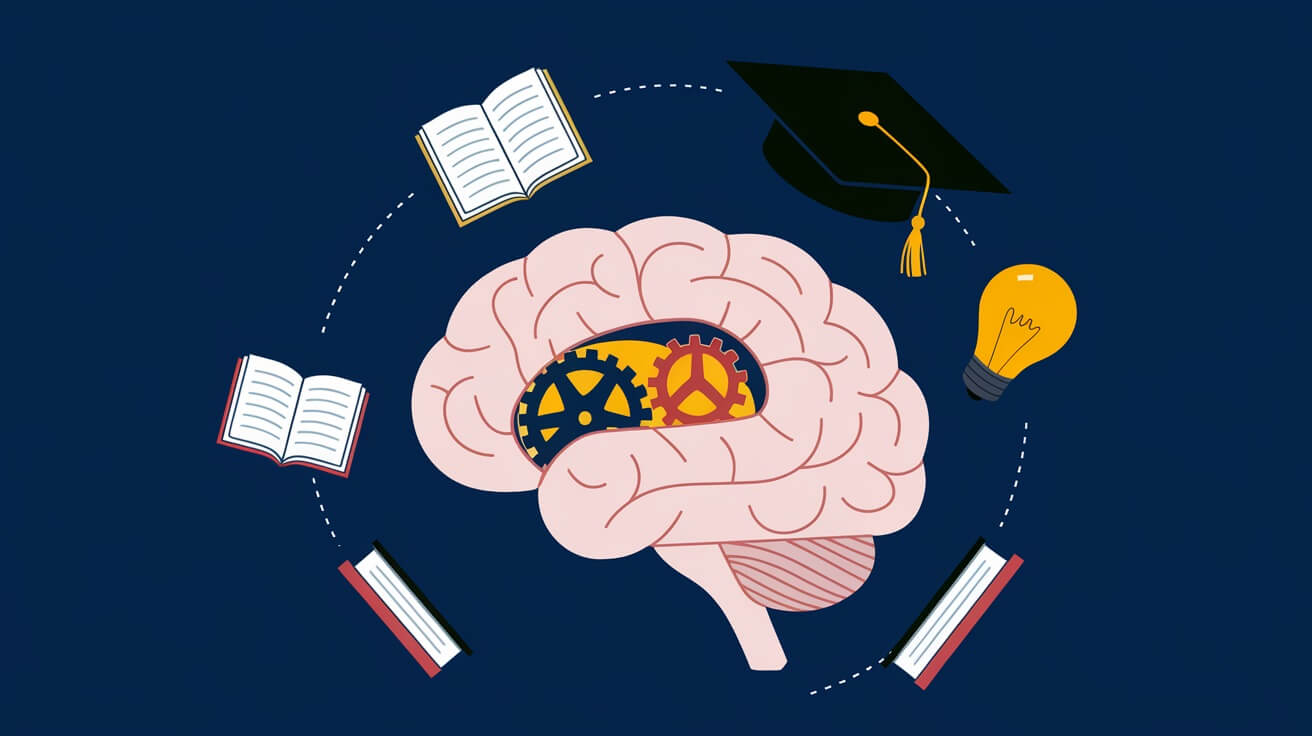
Why Lifelong Learning Matters in Today’s World
Have you ever wondered how some people stay ahead, constantly adapting and thriving, while others struggle to keep up? The secret often lies in one powerful habit: lifelong learning. Lifelong learning is about something other than earning one degree and calling it a day. It’s about staying curious, embracing new skills, and growing.
Think about this: knowledge isn’t static. Every day, industries evolve, technology advances, and our world changes. You might feel stuck or outdated if you rely only on what you learned years ago. This is where lifelong learning becomes a game-changer—it keeps you adaptable, informed, and competitive.
This article explores what lifelong learning truly means, why it matters, and how it can transform your personal and professional life. By the end, you’ll understand how to overcome barriers, use practical tools, and make continuous learning a natural part of your routine.
What is Lifelong Learning?
Defining Lifelong Learning
Lifelong learning is continuously improving your knowledge and skills throughout your life. It’s not restricted to formal education or a classroom. It’s about curiosity and openness to new experiences, ideas, and growth opportunities.
Whether you learn to manage your finances better, learn a new language, or master a hobby like photography, lifelong learning is about nurturing your mind.
Types of Lifelong Learning
Lifelong learning takes various forms, each catering to different needs, preferences, and opportunities for personal and professional growth. Recognizing these types can help you choose the approach that best aligns with your goals.
1. Formal Learning
Formal learning includes structured programs such as college courses, degree programs, or professional certifications. It typically follows a standardized curriculum and is conducted in an academic or professional setting. For instance, earning a project management certification or enrolling in an MBA program falls under formal learning. This approach is ideal for those looking to build credentials or gain expertise in a specific field.
2. Informal Learning
Unlike formal learning, informal learning happens organically in everyday situations. It might involve reading books, listening to podcasts, watching documentaries, or engaging in meaningful conversations. This type of learning is unstructured but incredibly valuable because it integrates seamlessly into daily life. For example, learning about different cultures by traveling or understanding a new concept through a casual discussion with friends is informal learning.
3. Self-Directed Learning:
Self-directed learning is driven by personal initiative. It involves actively seeking knowledge or skills through resources like YouTube tutorials, online platforms like Udemy or Coursera, and individual projects. Self-directed learners set their own pace and goals, making this approach flexible and accessible.
For example, many professionals today turn to platforms like LinkedIn Learning to stay updated with industry trends without attending traditional classes.
Why Lifelong Learning is Crucial

Technology’s Rapid Influence
Let’s face it: technology changes everything. Skills that were valuable a decade ago might not be as relevant today. For instance, jobs like artificial intelligence and digital marketing didn’t exist 20 years ago.
A report by McKinsey highlights that by 2030, millions of workers will need to reskill or transition to entirely new industries. Lifelong learning ensures you stay relevant, no matter how the job market evolves.
Staying Competitive in Your Career
When was the last time you updated your resume with a new skill? Employers today value individuals who demonstrate a commitment to learning. Whether acquiring leadership skills or understanding data analytics, lifelong learning gives you the edge to stand out in your field.
A friend of mine successfully moved from working in sales to building a flourishing career in IT. How did they do it? By committing just an hour each day to learning through online courses. This small but consistent effort made a huge difference in their professional growth. The result? A better salary, more flexibility, and greater job satisfaction.
Personal Growth and Mental Well-being
Lifelong learning isn’t just about professional growth—it also enhances your mental health. Studies show that learning new things improves memory, reduces stress, and increases happiness.
Imagine learning to play an instrument or picking up gardening as a hobby. These activities stimulate your brain and bring immense joy and fulfillment.
Benefits of Lifelong Learning
1. Adaptability
A key advantage of lifelong learning is adapting to change effectively. Whether switching careers or facing unexpected life changes, regular learning equips you with the tools to navigate new challenges confidently.
For instance, during the pandemic, many people learned to work remotely, mastering tools like Zoom and Slack, which were new to them. This adaptability came from a willingness to learn.
2. Improved Cognitive Abilities
Lifelong learning keeps your brain sharp. According to The Lancet, engaging in learning activities regularly reduces the risk of dementia by nearly 28%. It’s like exercise for your brain—keeping it active and healthy.
4. Enhanced Career Opportunities
The professional benefits of lifelong learning are endless, from promotions to new job offers. For example, certifications in high-demand areas like data science or project management can make you a top candidate for better-paying roles.
Overcoming Barriers to Lifelong Learning
1. Common Challenges
It’s easy to feel overwhelmed by the idea of lifelong learning. Common hurdles include:
-
Time Constraints: “I’m too busy with work or family.”
-
Financial Barriers: “Courses and certifications are expensive.”
-
Fear of Failure: “What if I don’t succeed?”
2. Practical Solutions
-
Make Time: Dedicate just 20 minutes a day to learning something new. Break it into manageable chunks.
-
Use Free Resources: Platforms like Khan Academy, Coursera, or even YouTube offer quality learning for free or at minimal costs.
-
Start Small. Set a simple goal, such as reading one article or watching a short tutorial. Small wins build momentum.
Remember, learning doesn’t have to be perfect. Progress, no matter how small, is what counts.
Starting Your Lifelong Learning Journey
1. Build the Right Mindset
Lifelong learning starts with curiosity. Ask yourself: What excites me? What skill do I wish I had? Then, set specific goals. For instance, if you’ve always wanted to learn public speaking, start by watching TED Talks or joining a local Toastmasters club.
2. Explore Resources
Here are some accessible resources:
-
Online Platforms: Udemy, LinkedIn Learning, and edX.
-
Books: Atomic Habits by James Clear is a great place to start.
-
Podcasts: Listen to The Knowledge Project for thought-provoking ideas.
-
Communities: Join forums or meetups to connect with others on similar learning paths.
Real-Life Examples of Lifelong Learners
Elon Musk
Elon Musk taught himself rocket science through books and research, eventually founding SpaceX. His story is a testament to the power of self-directed learning.
Everyday Heroes
A friend of mine, a retired teacher, learned to code in her 60s and now builds websites for small businesses. Lifelong learning gave her a renewed sense of purpose.
Practical Applications
Whether it’s better managing your finances, starting a side hustle, or simply picking up a creative hobby, the possibilities for lifelong learning are endless.
Conclusion
Lifelong learning isn’t a trend or a luxury—it’s a necessity. It keeps you adaptable, mentally sharp, and professionally competitive. But more importantly, it makes life more prosperous and more fulfilling.
So, what’s stopping you? Identify one skill or topic you’ve always wanted to explore and start today. Remember, every small step adds up to meaningful growth.
FAQs
1. What are the key benefits of lifelong learning?
Lifelong learning improves adaptability, mental health, and career prospects.
2. How can I start lifelong learning?
Begin with small, manageable goals, such as watching tutorials or reading a book on a topic you’re curious about.
3. Why is lifelong learning important for careers?
It keeps you up-to-date in a shifting job market and enhances your value to employers.
4. What resources are best for lifelong learning?
Platforms like Coursera Udemy and podcasts like The Knowledge Project are great starting points.
5. How does lifelong learning impact mental health?
It reduces stress, boosts confidence, and keeps your brain active, lowering the risk of cognitive decline.
Life Skills Life Career Development

